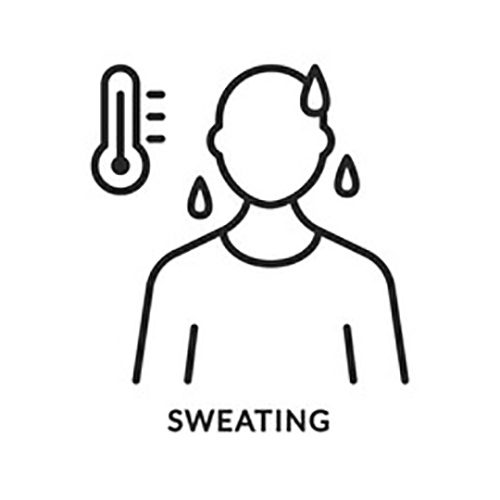 |
Due to the prolonged COVID-19 outbreak people had to live with masks even in hot weather. Breathing becomes difficult and stuffy when you wear a mask during the heat wave. This makes it easier to get “sunstroke” and “heatstroke,” which are heat related illnesses caused by the heat wave. Then, what are sunstroke and heatstroke, and what are these symptoms?
Sunstroke is also called “heat exhaustion,” and appears when the body temperature rises to 37 to 40 degrees Celsius due to exposure to a high-temperature environment. It occurs when water and salt are not properly supplied because of a lot of sweat, and symptoms such as headache, dizziness, fatigue, lethargy, and vomiting can appear. Sunstroke is characterized by sweating excessively, turning pale, a rapid heartbeat, and extreme weakness. Most cases of dizziness fully recover within 30 minutes. Even if some mental confusion occurs, it is possible to recover to normal status by resting in a cool place for about 30 minutes. However, if the sunstroke persists, there is a possibility that it can lead to heatstroke. Heatstroke refers to the symptoms of losing the function of body’s thermoregulatory center when continuing to work in hot environment such as exercise or physical labor. It causes the body temperature to rise above 40 degrees Celsius, and symptoms such as headache, dizziness, nausea, and visual disturbances can appear. In severe cases, it can cause acute renal failure and diarrhea.
The most important thing is to prevent heat-related illnesses such as sunstroke and heatstroke. Therefore, the Dongguk Post wants to protect your health by suggesting how to prevent heat-related illnesses.
1. Drink water regularly, even if you are not thirsty.
2. Stay cool by wearing loose-fitting, and light colored clothes rather than dark-colored clothes.
3. Avoid outdoor activities during the hottest hours of the day, from 12 P.M. to 5 P.M., when the sun is at its peak. (If you must go outdoors, you should take regular breaks.)
4. Use a parasol and hat to avoid the sun when going out.
In particular, the elderly, children, and chronically ill people are more vulnerable to heat-related illnesses than healthy adults because of their lower function of body temperature control. Therefore, attention is needed from those around. To spend a healthy summer every year, the Dongguk Post recommends you to follow these prevention rules.

